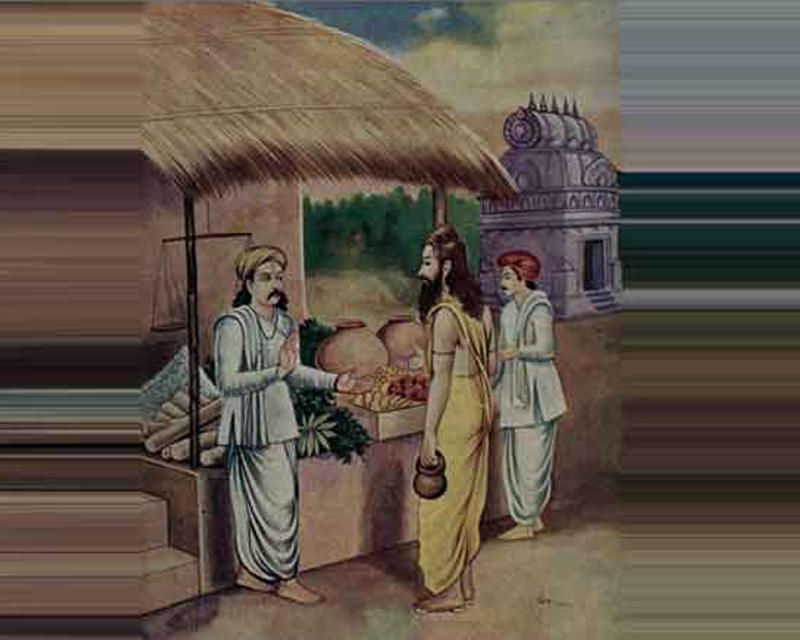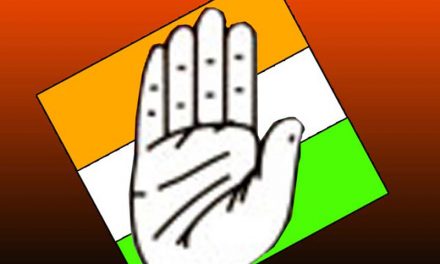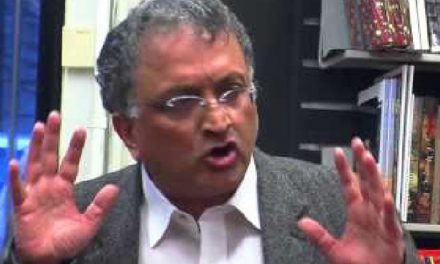India has suffered tremendously over more than 1200 years from the plunders of external Invaders of Islamic and Christian origin. A once glorious civilization which led the world in almost every aspect was reduced to a “third world country” begging others for even basics like food grains in early years after independence.
India regained its political independence from British in 1947, but continues the struggle for psychological independence from the colonial hangover of western powers, and gain its rightful place in the world. As we stumble, walk and run in this quest, the national subconscious continues to struggle with the question which haunts the minds of every right thinking indian – “If we were so good and great, what caused our downfall? What is the root cause behind this decline and fall of Indian civilization?”
These are difficult questions and there is possibly no one answer which will explain the miserable fall.
Yes, the same happened to other great civilizations like Egypt, Greece and Romans, but the misery of others does not reduce the pain of your own misery.
A recent article focuses specially on the role of the mercantile class for their “collaboration” with Abrahamic invaders and seeks to paint them as the villains of the piece. The piece is rich in data points related to Indian merchants and similar examples from Europe and North America.
For those who have not read it, here is the link.
https://www.myind.net/indic-mercantile-collaboration-abrahamic-invaders
It is a detailed write up of 11,273 words including the descriptions of references.
I disagree with them and let me explain why, in less than one fourth of the word count that they have taken to make their point.
On a preliminary review, it appears as a well-researched piece where the writers clearly articulate their objective in beginning and then set forth to provide arguments and data points to support their arguments.
A detailed review, however, raises several questions on the objective itself, the choice of subject and the glaring omissions.
This is how they start.
“In other words, a colonial regime cannot last long unless it allies with internal powerful socio-economic groups, which we denote as collaborators. The history of internal collaboration has not been documented. It is, of course, a history of shame; it is a history of pain. Yet this is precisely why this history needs to be told and retold.”
This is the starting point. So yes we got invaded and colonized for over 1200 years, and there are reasons why we lost to invaders, and reasons why the invaders were able to sustain their rule. The writers only want to focus on reasons why they were able to sustain for long term and who were the collaborators who allowed the invaders to sustain the rule for over 1200 years.
I won’t question why the writers choose to ignore the reasons of losing to invaders in the first battles, and only about the sustained collaborators. It is their prerogative to choose the subject of their writing.
They further go on to explain the different types of collaborators.
“It is the tale of internal Indic collaborations that we seek to narrate today. There were four major categories of Indian populace that collaborated with the invaders: the hereditary royalty, the administrative nobility, the martial classes and the business classes, who we refer to as the merchants. The hereditary royalty and the martial classes fed into the military infrastructure that the invaders used to conquer parts of India and also to suppress rebellions; at times, the duo assisted the invaders in their defense in wars and rebellions outside the boundary of India. The nobility provided administrative support in formulating and executing the policies that enabled the invaders to exploit and suppress the Indians. The stories of all these collaborations need to be documented. But, in this article we focus on mercantile collaboration with invaders.”
Here is where it becomes interesting. Very conveniently, the missing piece here is the intellectual class. The pundits, the advisors, the jyotishis, the teachers, gurus, the purohits, the saints, the writers, the poets. These are people whom the kings looked up to. These are people whom the populace looked up to. These are people who guide the kings and populace alike.
It is clear that the authors don’t believe that they collaborated. Which means they were either neutral or abstaining, or they were virulently opposed to the invaders. The authors make no mention of their views on it.
Given that the writers normally are part of “intellectual class”, to me it appears a typical case of “they did it, wasn’t me!”
Anytime anything goes wrong, normal human tendency is to quickly apportion blame to “other side”.
So it is not surprising that the writers think that ruling class, administrators, martial classes, practically everyone else were the ones to blame.And then they go on to specifically dwell in the next 10,000 words only on mercantile class collaboration, for reasons best known to them.
It is like a large 300 years company goes down for non-performance against the competitors. The journalist probing the cause of loss says, CEO could be responsible, and the board, and marketing, production, technology, sales, and execution, and finance and treasury
Now I am only going to focus on mistakes and misdeeds of the finance folks.
Yes, it is your right but is also a Freudian slip of character when you choose to train your guns on a specific class which played some role but ignore the role played by other more important stakeholders who had more onerous responsibilities.
If we were to analyze the histories of all the countries of the world, across centuries, the histories would primarily mention rulers and kings. In India, if you read historical accounts of last 3000 years, written by various historians and others, you would primarily hear about rulers, kings, saints, and to some extent artists and poets. India has always had a wealthy mercantile class, even when we were poor. So if we were to focus on identifying wealthy merchants across the centuries, we should have a long list. They might be hidden somewhere in accounts buried in obscure books, but in popular history, you hardly find mentions of merchants.
What does this tell us?
It means we have always paid attention to what the rules say and do, what the saints say and do, what the poets say, what these folks tell us and that forms historical narrative. If merchants have shaped historical narratives, there is hardly any proof of that.
When Chanakya crafted the Mauryan empire more than 2000 years ago, and installed Chandragupta as the king he had his share of merchants who were on his side and merchants who were not on his side. He knew how to handle the mercantile collaborators and weave a strategy to secure and build a Mauryan empire.
Let us move get back to the piece. When focused on mercantile collaboration, the authors go deeper to focus on specific aspects of that collaboration.
“In our series, we would argue that this disproportionate concentration of wealth is a direct outcome of preferential treatment the merchants received from the long-standing invading regimes in India, and the devastation the invader-merchant duo jointly perpetrated on the bulk of the rest of the populace. Such coalitions prosper over long durations, only when they are founded on shared economic and political benefits, and mutually beneficial social characteristics. We will explore the first two in the remainder of the series, in this article we focus on the social characteristics of the mercantile communities and the invaders that ideally suited the needs of each other.”
So what I hear them saying is this – we will not worry about why we lost to invaders, about why the kings didn’t fight well, why the armies failed, why the intelligence failed, why our glorious traditions of Indic Knowledge systems and our saints failed, why our people failed. About why we could not come up with another Chanakya and Chandragupta combination in last 1200 years.
Let us focus on the traders, and what social characteristics of theirs suit the need of invaders.
So the logical conclusion to me is that authors think this is the primary reason why India continued to be enslaved for 1200 years and so it merits this kind of special focus.
Is it really so, is it because there is no one amongst the writers’ team who actually is from merchant or trader community and it is their individual and collective bias against the merchant class which drove them to write this piece? Is it possible that this hatred of trader class and merchant class, has made Bengal what it is today, from its once glorious heights? Maybe, but I digress.
Let me propose another possible theory as the root cause of our long term slavery.
As the writers put it rightly, It is, of course, “a history of shame; it is a history of pain”
There have been many sins, of commission and omission. Enough has been written of sins of commission. Let us talk about sins of omission.
India has been known as the land of spirituality and gateway to God. Hindu religion talks of multiple paths to spiritual self- realization and extols that as the ultimate goal for all human beings. Men of God, Men of religion, have always been revered and respected by the populace and by Kings.
It is a possible theory that this class, which does not find mention in the article, has been guilty of sin of omission, if not sin of commission.
Samarth Ramdas Swami, Shivaji’s Guru, ran away from his house in quest of God when he was barely 8 years. He was roaming in forests, visited temples and learned men, and meditated till he found salvation. And legend has it that he was tempted to spend rest of his life in pursuit of God, away from the world, only in Himalayas but his inner voice or the voice of God told him not to be selfish and serve people because the populace was suffering.
He went and raised a band of followers, guided Shivaji in his pursuits and guided the populace with his writings and his exhortations and setting up a Math of many followers.
We have several examples in recent past itself. Golwalkar Guruji had devoted many years of his life to RK Mission and had turned away from Sangh, when Hedgewarji prevailed upon him to come back to RSS and lead it to serve the nation.
Subhash chandra Bose also spent some time searching for Guru in Himalayas before he responded to his inner voice exhorting him to fight for country.
Sri Aurobindo who was the leading light of revolutionaries in Bengal decided to devote rest of his life to spiritual pursuit after an experience with Krishna in his jail term. Many people blamed Aurobindo and called him escapist for leaving when the whole Bengal and most of India was looking to him for guidance.
It is quite possible that Sri Krishna who exhorted Arjuna to fight the battle of Kurukshetra inspired Aurobindo to devote the rest of his life, next 40 years to spiritual quest.
Maybe, we needed many more Ramdas Swamis, and the Sikh Gurus throughout our history of 1200 years and less of Sri Aurobindos. Maybe more of the Gurus who went to Himalayas and focused on meditation should have been amongst the masses and led the mass uprising against the invaders and their sustained (mis)rule. Maybe we needed 10 more Chanakyas and 10 more Chandraguptas to withstand the onslaught of Islamist and Christian invaders.
When Shivaji and Ramdas Swami came upon the scene, they used the same populace, same peasants, same merchants, same traders to rise against Mughals and establish the Maratha rule. So it is the leader and the Guru who really counts.
What was the bug in our psyche that we could not repeat this, what was missing that our saints and Gurus felt it right to seek personal spiritual elevation and not guide the rulers and populace against the invaders is the question we should ask ourselves. It is futile to look elsewhere.
Another possible cause behind the continuance of the really long long period of slavery of India is our confusion and inability to balance material and spiritual world/views.
India has always been a spiritually blessed land with Gurus and Saints who are realized souls, who have known the Brahmin for what it was, who knew what “Aham Brahmasmi” means, who expounded and believed in “Brahma Satya, Jagat Mithya”.
These are deep spiritual truths and it is easy to get lost in them. What seems to have happened is while Islam and West went to one extreme, totally believing in Materialism and looking for progress in material terms, India went to other extreme, looking for excellence in Spiritual terms. Both got what they wanted, in proportion to their efforts.
We always had, and nurtured a spiritual ecosystem which made it possible for any seeker of God to find salvation if he is really committed to the goal. The ecosystem continues to thrive today.
What has also happened unfortunately is that the masses and also the rulers have imbibed the messages only partially and got confused.
So we worship Krishna but do not take his message of Bhagawad Geeta of fighting injustice. We praise Janaka but do not realise that he balanced realization with running a kingdom.
So over centuries, we neglected the importance of materialism and strength and lost the “Kshatra Tej”.
We forgive our enemies, like Prithviraj did and suffered. In battle of Panipat, Abdali slaughtered hundreds of cows, polluting the drinking water knowing the Maratha army will not drink the water. And Marathas lost.
Our confusion and inability to interpret the messages in our scriptures enfeebled us, and enslaved us. And not all of our Gurus are good at sorting out this confusion and guiding us on the path of true “Karma”.
We had a glorious tradition of Ashwamedh yagna and Rajasuya Yagna, where Kings were able to engage in pursuit of establishing the superiority over other kings in a Dharmic framework which was sanctioned by the scriptures. So we as a nation were not against battles, wars, or conquests.
The misinterpretation of need of peace, of universal brotherhood, and quest of God to exclusion of material prosperity confused us and made us susceptible to foreign invaders.
Islam and Christianity had focus, and more important had the will to rule the world. Our fatalism betrayed us.
It is foolish to blame any single class for our failures.
However, if I have to blame anyone class at all, I will blame the Saints and Brahmins whom the masses trusted and who could not encourage the masses to rise against the “Adharma”, who could not guide us on the path of “karma” when needed.
We needed not one but several Krishnas throughout the history who urged us to fight and not believe in “brahma satya, Jagat Mithya” without the right context.
Does this sound simplistic, foolish, sacrilegious and wrong as a theory?
Maybe it is.
Singling out the mercantile class and focusing on their collaboration to exclusion of everything else, is equally dangerous, and foolish.










